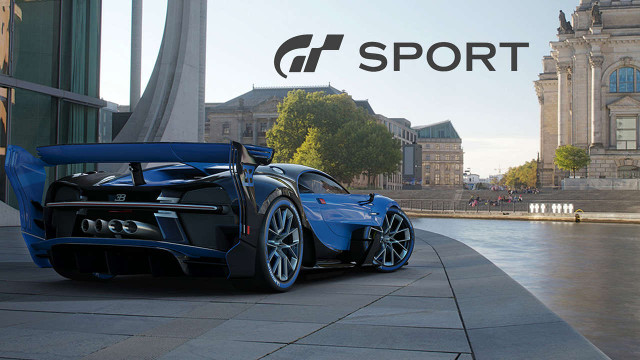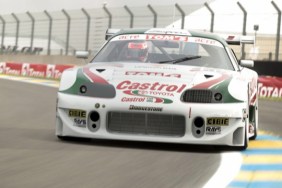The Gran Turismo series has remained one of my favorites since I bought a PlayStation in the late 90's. Rather than my interest in cars bringing me to the series, it was my experience with Gran Turismo that made me interested in cars for my first time ever. With that, I've become a huge automotive enthusiast over the years, to a point where I can call out engine types after hearing them.
There are a lot of reasons why Gran Turismo is beloved by millions around the world. Though, audio design isn't one of them.
The way cars sound in Gran Turismo has been a running joke in the gaming community for more than a decade. Commonly compared to sounding like a "vacuum cleaner", at best the cars sound acceptable but inaccurate. Whether you're driving a naturally aspirated V12 Aston Martin DB9 or 4.0L V8 of the E92 BMW M3, the ears are treated to a basic audio presentation that misses its mark of trying to simulate the real world.
In recent years this flaw has become more glaring. The advent of lower budget racing simulation titles such as Assetto Corsa and iRacing with comparable audio delivery has raised a few eyebrows. Meanwhile, Forza Motorsport has improved in dramatic ways with each release, including its audio, which at this point is far ahead of what Gran Turismo 6 demonstrated.
The next generation of Gran Turismo, Gran Turismo Sport, opened up a beta this last weekend, and myself alongside thousands of other automotive fans took to its tracks. At initial inspection what stood out the most was the game's beautiful presentation, but that's to be expected of any Gran Turismo game. As visually brilliant as it was, over time it became clear that its audio was the real star of the show.
There's a surprising amount of complexity to be found in the vehicles of Gran Turismo Sport. Exhaust notes of notable cars like the BMW Z4 GT3 GTSport and Jaguar F-Type GT3 have been recreated with incredible breadth and tonality. There's now diversity to be found in the audio presentation, with each vehicle on the track radiating its own personality for all to hear.
You can hear the pop of the transmission as you downshift at a corner, and the exuberance of the engine is put on full display as you hit redline revving out of your apex. Ceramic brakes grabbing against your rotors, and tires rebounding over rumble stripes produce lifelike effects. There are a lot of subtleties to be heard that weren't in attendance for prior Gran Turismo games, and picking up on them is reason to be impressed.
This was the final piece of the puzzle for Gran Turismo, a series that has historically fought to be a proper simulation. Recently, its reputation as being king of the jungle has been challenged by Project Cars, a handful of great lower-budget PC racing franchises like Assetto Corsa, and the Forza Motorsport franchise. Apparently it's been feeling the pressure, and is probably better for it.
Gran Turismo's audio improvements with this release are no mistake or random occurrence. Feedback regarding the state of the franchise's audio design has been brought up on numerous occasions, to a point where Polyphony Digital became well aware of the implications of its lack of effort several years ago. As a result of this, it picked up the Forza franchise's audio lead Mike Caviezel during April of 2015, among several other hires for the audio portion of the game. Its investment has paid off in a noticeable way.
For the average racing game fan, this isn't an area of improvement that brings with it substantial results. To many, the lifelike sounds of the game's roster might go unnoticed. However, for automotive enthusiasts it's a huge boon to the authenticity of the game.
At this point Gran Turismo Sport is a work of art in terms of presentation. Hopefully the gameplay and features can keep up, and if they do, this could end up being yet another huge hit for Sony in 2017.







